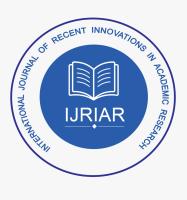Assessing Gender Equality in the Provision of Educational Opportunities: A Case Study in Freetown, Sierra Leone
International Journal of Recent Innovations in Academic Research, 8 (1):
10-23 (January 2024)DOI: https://doi.org/10.5281/zenodo.10604374
Abstract
The education act of 2004 outlines Sierra Leone's education system, including primary, junior, senior, and tertiary education. The education sector plan 2018-2020 aims to increase access to education for all, including PWDs. The medium-term development plan 2019-2023 prioritizes human capital development. The national policy on radical inclusion targets girls, PWDs, and marginalized children, addressing high rates of adolescent pregnancy, child marriage, poverty, and equal opportunities. The policy requires initial sensitization, training, and benchmarking progress. The study evaluates gender equality and radical inclusion policies in Sierra Leone's education using qualitative research methods like interviews, focus groups, and document analysis. The descriptive design, involving both primary and secondary sources, ensures comprehensive understanding and applicability to the entire population. The study found that poverty, inadequate school infrastructure, lack of toilets, special rooms for mature girls, long distances from home to school, and lack of sex education are the main factors influencing gender inequalities in education in selected schools. Additionally, 36% of respondents identified sexual harassment with peers/teachers as a significant factor, while 47% agreed with the statement that family responsibility also influences gender inequality. The majority of respondents agreed that the lack of classrooms to increase access to safe and adequate learning facilities is a challenge in implementing the national policy on radical inclusion in schools. Cultural beliefs and practices also pose a challenge, with 76% agreeing that these factors constrain effective teaching and learning in most sampled schools. Additionally, 70% of respondents agreed that the lack of proper monitoring and evaluation of the policy is a significant challenge in achieving inclusive education in Sierra Leone.
